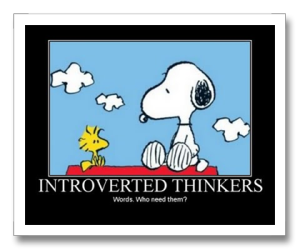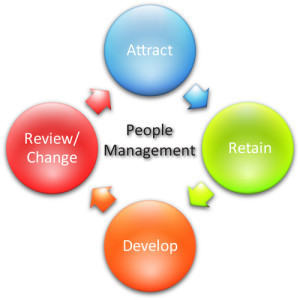Joel Garfinkle's Blog, page 17
June 30, 2014
Be Advised: More Employers are Searching Social Media Sites!

“You are what you share.”
~ C.W. Leadbeater ~
Client Isaac Asks: I work in the IT industry, and I’m preparing to search for a new position. I know that some companies are using Google to check out prospective employees. Should I be worried about this, and if so, what steps can I take to make sure prospective employees don’t find anything that could hurt me?
Coach Joel Answers: Employers don’t just use Google to check out job candidates, they’re relying more on social networking. In fact, a study conducted by CareerBuilder found that 37 percent of employers use social mediasites to research potential job candidates.
Information technology companies are most likely to screen candidates this way. Some 63 percent of tech companies surveyed are scouring sites such as Facebook, LinkedIn and MySpace to get an up-close, behind-the-scenes look at candidates they just can’t get from interviewing or reading resumes.
So if you’re in the job market – or may be in the future – be aware of what you put out on the Internet. If it’s out there – good or bad – it’s just a mouse click away from a hiring manager.
And the results can be catastrophic. CareerBuilder’s survey revealed that 35 percent of employers found social mediacontent that caused them not to hire a candidate.
With that in mind, here are some tips:
Google your name to see what content is out there on the internet.
Check out the other major social networks to make sure you have made the impression you want to make.
Identify the web pages where you have posted your resume or other work-related items and make sure they are up-to-date and reflect on you positively.
Remove any content that reflects negatively on you. You don’t want a bad reputation online.
Provocative or inappropriate photographs or information top the list of red flags to employers. When in doubt, take it out.
Create positive content about yourself and try to get it to be as high as possible in the search results.
Write and submit well researched, articulate letters-to-the-editor to the top trade publications in your industry. Focus on current, relevant issues.
Purchase your name as a domain name and create an active website that makes the best impression possible.
Post articles that you write that show your expertise on free publisher websites.
Write comments on other blogs that show your level of intelligence, expertise and experience.
Create a blog and write quality content for it.
Select two of the above tips and commit to working on them this week to ensure that your online presence gives a positive impression.
Talkback: Have you ever been denied a job or promotion because of something an employer found online? Tell us about it in the comments.
Image courtesy of hh5800 / iStockphoto.com
More Employers are Searching Social Media Sites! appeared first on Career Advancement Blog.
June 23, 2014
The “Swiss Army Knife” Tool for Optimum Leadership Development
“Using coaching instead of sending executives and managers to seminars two or three times a year can be more beneficial to ongoing career development, not to mention less expensive…”
~ PC Week ~
Client Fahad Asks: There are so many programs out there claiming to develop leadership in people. It’s hard to know which are effective and which are money-stealers. Isn’t there one tool that can do it all? Can’t it be simple?
Coach Joel Answers: Great question, Fahad.
When you’re looking for a tool, you want something simple, effective, and right for the job. You want best value and precise results. We all know what happens when we try to use the wrong tool for the job. It can ruin things.
To answer your question, there is something that works for developing leadership in people. It works in all cases. Like the Swiss army knife, it holds all the implements needed to solve the problem at hand.
Let’s discuss how leadership coaching can be your tool of choice.
1. Simple. Rather than buying dozens of books or manuals, courses or online lessons, choose one qualified coach. It simplifies the decision making process.
You don’t have to spend hours figuring out the trade-offs between programs. With a coach that understands your business and your succession management, you have the best possible tool.
2. Effective. Rather than programs that give a blanket approach, your coach offers leadership development keyed directly to the individual. The give-and-take feedback allows for optimum growth. People can solve their concerns, increase their skill levels, and be prepared to rise to the top.
3. Best Value. Leadership coaches can address the issues faster and more directly than any program or training series. Instead of wasting money on generic training that only is partially effective, use 100% of your funds on meaningful achievement.
Coaches can focus on the specific areas that need improvement and bring fast results.
4. Precision Results. The shot-gun effect of most training programs may leave some of your potential leaders still searching for answers to their problems. It may be they just have a few questions that could be simply addressed. But those questions are unique to them.
When you have a live coach and the give-and-take feedback, these concerns can be addressed quickly bringing instant results. Rather than taking a course to accomplish the job, a coach may build the leadership of your people very quickly.
5. Right for the Job. Because every individual is unique, the tool to help them needs to be individualized. To insure your leadership development is exactly fitted for your people, you need a leadership coach. They will adapt and fit the needs and goals of both your employees and the management.
They can offer specialized and unique training that exactly fits the needs of your rising stars. They understand the value of company culture and can work directly with management to formulate training that gives maximum results.
Fahad, you ask a good question. Rather than waste time and energy on expensive training courses, focus on individual coaching to give you effective, precise results. You’ll find that as you develop a relationship with that leadership coach he or she will be able to give you stronger leaders who are immediately effective.
If you’re seeking to develop great leaders and want a leadership coach who can give powerful, prompt results, contact Joel .
Talkback: How have you found leadership coaching effective for you or your company?
Image courtesy of Fotolia.com
The post The “Swiss Army Knife” Tool for Optimum Leadership Development appeared first on Career Advancement Blog.
June 16, 2014
6 Strategies for Introverts to Master Office Politics
“When psychologists have looked at who have been the most creative people over time in a wide variety of fields, almost all the people they looked at had serious streaks of introversion.”
~ Susan Cain ~
It seems to Gary that offices are constructed and organized to favor the extrovert. As an introvert, he finds open office spaces draining. And meetings with rapid give and take showcase extrovert’s social skills, but frustrate him as he takes time to think.
Gary determined to build on his own strengths in the office. While outgoing people gain energy from being around others, Gary knows he gains energy from solitude and ideas. Gary values the introverts in his office because they can focus easier and produce more.
Here is Gary’s list of six ways introverts can shine in the world of office politics.
1. Connect with Ideas. Instead of joining others as they talk about sports, movies or people, Gary starts a conversation about ideas. He finds common ground with other people when he focuses on thinking topics, not social events.
2. Understand Yourself. Gary recognizes his need for quiet and regeneration. He accept that in the wide range of personalities, he works best without distractions.
A study discussed in the Harvard Business Review showed introverts responded better to problem solving when the background noise level was lower. Extroverts performed better with louder noises.
When both you and your boss understand that you will be more productive when you have quiet and solitude to focus, you will benefit. Recognize that others may find synergy in large group discussion.
3. Be Comfortable Being You. Gary learned his best work practices. Then he determined to speak up. When necessary, he requests that quiet office—or time in an unused conference room. Often he suggest meetings hold a few key players instead of multitudes.
Gary got his boss to try “Brainwriting” instead of brainstorming in sessions. Here each person writes an idea on a piece of paper and passes it to the person next to them. Once a paper has four to five ideas, the group stops to discuss them.
The quiet and time gives thinkers a better chance to respond. “It’s really helped me add value to the group,” Gary says. “And even the vocal members like it. They get to shine when we discuss it.”
Sometimes Gary gets an agenda ahead of time and plans out his thoughts and ideas.
4. Develop Relationships Your Way. Socializing sometimes seems like a waste of time, but Gary recognizes that we all need relationships. He schedules 30-45 minutes each day to visit other people. He just stops by and say hi. “That small talk builds bridges,” he says.
What extroverts call “networking” or “selling yourself,” Gary renames. “Consider it ‘having a conversation’ or getting to know someone and letting them get to know you,” Gary says. “Choose your environment. I like one-on-one or small groups.”
5. Be fully present for 10 minutes. When you are with other people, totally focus on them and what’s important to them for a full 10 minutes. “I find I can focus for that 10 minutes,” Gary says. “Then I feel free to move on.
“When you use your strength of focusing and direct it toward others, you make them feel valuable and important. This builds relationships and trust.”
6. Be Confident in Your Strengths. Gary learned to value the great strengths he brought to the office. Studies show that the introvert rises to the top in team building as others value their focus and productivity. Many of the great creative people have had a more private personality.
Less outgoing people make great leaders. They are more willing to listen to others ideas. I think I use other’s strengths and let them run with an assignment,” Gary says. “Introverts are less likely to feel they must put their stamp on the project.”
Work places perform best with a blend of personalities. Each kind brings their own strengths to the mix. “As you come to trust your strengths and be comfortable seeking ways that allow you to be the most productive, you can thrive,” Gary says. “Then office politics are no longer a struggle for the introvert.”
Trying to figure out how to shine at your office? Contact Joel for a personalized assessment of your strengths and a blueprint on how to move up.
Talkback: Introvert? What is your best coping skill? Extrovert? How do you connect with introverts?
Image courtesy of Fatgirlwearingthin.com
The post 6 Strategies for Introverts to Master Office Politics appeared first on Career Advancement Blog.
June 9, 2014
Business Leadership Program – 6 Skills you MUST Teach
“Promotion means finding new ways of being successful- and walking away from the old ways that defined success. A leader who tries to be the same leader across all levels is not going to be successful at all.”
~ Matt Pease, DDI Vice President ~
Client Jamie Asks: There are many people in my organization that could benefit from increased executive presence. What should I look for in a business leadership training program? What skills can I expect my people to gain from such a program?
Coach Joel Answers: This is an important step. Your executives and those you are grooming for leadership need to have a whole company perspective. To be successful they must move from a tactical day-to-day approach to a more strategic overview. Here are six skill sets you’ll want your business leaders to develop.
Step away from the day-to-day. There’s a saying: When you’re up to your ankles in alligators, it’s hard to remember you’re here to drain the swamp. Executives face many compelling day-to-day problems that can eat up all their time. Help your executives learn how to set aside a specific part of their day to reflect on ways they and their team can contribute to the company’s bottom line.
Look at the big picture. It’s no longer enough to excel in your area. You need a clear view of how your work contributes to the overall success of the company. Get your program to help your leaders elevate their sights.
Gain self-confidence. This is a mind game, but it’s based on past performance. People need to know they are doing a good job. A key training program will help your leaders assess their past ideas and work. This builds self-assurance which will give then that executive presence that makes people want to follow them.
Do the work. Find a program that focuses on teaching skills that give real, measurable results. People need to deliver on the high profile jobs they are given. When they manage every project so their work shines, they demonstrate their abilities to co-workers and supervisors. And it gives your people confidence they have the necessary skills to perform at that high level.
Recognize and seize opportunities. Part of situational awareness is looking beyond current tasks. What else needs to be done? Is there a gap that someone is not filling? Can you take the initiative? Successful executive training courses help with the mind shift necessary to look beyond the average and take those opportunities.
Focus on solutions. Far too many people spend lots of time discussing the problems. They may lament the shortcomings or complain about the problem. Good leadership seminars will show people how to find solutions.
Jamie, you are wise to look at training your leaders from within. You already know their work ethic and they know the company culture. But leaders don’t just grow on their own.
They need extra and different skill sets. They need a professional to coach and train them to perform at their optimum level. The abilities that have grown them to this point are not sufficient to get them to the top. Unless you train them in those new ways of thinking and acting, you will not help them acquire that executive presence.
Of course you and I both know it can’t be a façade. It can’t be for looks. That leadership, that executive presence has to be backed by a history of success and by skills and vision.
If you need one or two people to gain these skills, I recommend individual coaching. If you want a group of people to grow, a business leadership course can be brought to your executives and tailored to their challenges and the needs of your company.
For more information on how Joel can help your leaders gain that executive presence, contact him.
Talkback: Have you found programs that were successful in developing your leaders?
Image courtesy of Fotolia.com
The post Business Leadership Program – 6 Skills you MUST Teach appeared first on Career Advancement Blog.
June 2, 2014
Attract & Retain Your Valuable Employees
“Employees who believe that management is concerned about them as a whole person – not just an employee – are more productive, more satisfied, more fulfilled. Satisfied employees mean satisfied customers, which leads to profitability.”
~ Anne M. Mulcahy ~
Felix is a supervisor of engineers at a nuclear power plant. His goal was to attract and retain his valuable employees. “The money invested in training new engineers is astonishing,” Felix said. “I wanted to keep my people.”
There are three supervisors over three divisions of workers. Felix noticed that one supervisor, Max, had a very large turnover in workers— nearly 100% annually. And the other supervisor, Madison, had almost no turnover.
“I was in the middle,” Felix said. “I had some turnover. More than I wanted, but a lot less than Max.”
Felix saw some of the reasons Max couldn’t keep his people. He was a workaholic and demanded the same of his employees. He was critical and demeaning.
“I wasn’t like that,” Felix said. “I thought I was a fair boss. But still… I had this attrition.”
Felix researched and found a study by John Kammeyer-Mueller of the University of Minnesota called Support, Undermining, and Newcomer Socialization. “It gave me three key pieces to help me support my new hires and make them more likely to stay for the long haul,” Felix said.
1. Management Matters
The study showed that the support of management outweighed support from co-workers. Support from co-workers did make the new hire feel better. But the praise, encouragement, and help from supervisors had greater impact.
That support—in the early days—made workers more likely to stay even months or years down the line. It helped establish their overall view of the company and the job.
“We have a really high learning curve,” Felix said. “Sometimes, I think, we just point them in the right direction and say, ‘Good luck.’ I realized we needed to do much better than this.”
Rather than thinking you could start the engineer on the training path and leave it to others to help out, Felix realized part of the success of his job was to be more involved.
2. Build Connection into the system
“I watched how Madison interacted with her employees. She didn’t taper off the contact after the first few weeks,” Felix said. “She really had a more involved approach. She had an open door policy. She gave specific feedback—both positive and negative—but in an easy-to-take way.”
Felix realized he needed to have greater interaction with the new hires even after the first few weeks. That was not long enough for them to be nearly up to speed. Some of them felt abandoned and then got unhappy or discouraged.
“I realized my feedback and support was vital not just in the beginning, but for months into the employee’s job,” Felix said. “And even after that, I needed to be more involved.” He scheduled time for his own open door policy. He took lunch with the engineers for a more casual time to chat. He tried to be more open with praise.
3. Attracting Valuable Employees
“I was surprised that even just supporting my current workers made a difference in new hires,” Felix said. “I overheard one new engineer talking to a friend just graduating. He was telling him to apply here. It was a great place to work.
“It kind of made my day. I realized I was doing it right. And it was attracting the kind of engineers I wanted.”
Felix realized that a happy work environment was where his engineers felt supported and encouraged. It then resulted in a word-of-mouth call for engineers who would fit well into that situation.
Overall, Felix found that his attrition dropped off and he retained his valuable employees longer. “I think the continued support and interaction of management made the difference,” Felix said. “We can’t just hire people and turn them loose. The more and longer I set up good work support, the happier my engineers became.”
Looking for ways to get your management more encouraging and supportive of your key workers? Contact Joel
Talkback: What are some ways you have found to attract and retain key players?
Image courtesy / Shutterstock.com
The post Attract & Retain Your Valuable Employees appeared first on Career Advancement Blog.
May 26, 2014
Motivational Speaker to Enhance Personal Growth & Communication
“Recognize, manage and master your beliefs. They aren’t genetic. They are choices. Choose ones that serve you.”
~ Christopher Babson ~
Larry felt he was out of ideas. He put in his time at work, but he found so much to frustrate him he got to the point where he almost didn’t care anymore. He knew he needed an attitude adjustment. He wanted a way to get enthusiastic and happy with his job.
But he wasn’t getting any help from work or family, or anyone. Finally Larry decided to take action on his own. He signed up to hear a motivational speaker. Larry wasn’t sure what to expect. What he got was beyond anything he imagined.
The motivational speaker helped both his professional and personal growth. He learned things he could use at work and in all the other areas of his life.
Real, actionable information. Larry learned things about thought patterns and road blocks he’d been putting in front of himself. This information freed him to explore new ways. It was like a door opened to new opportunities both at work and in his personal life.
Guidance and direction. Larry recognized he’d been lacking direction. The fixes offered by the motivational speaker were things Larry could apply immediately. He felt like he left with an achievable game plan.
Communication. Larry learned where he was failing to communicate well. He immediately saw how that was making work more difficult. He also saw how these new skills would help him with his wife and children. He knew as he made these changes he would be more effective. It was exciting to feel himself growing and changing so quickly.
Enthusiasm. Something about the motivational speaker was contagious. As Larry sat in the room he felt his life expanding. It was such a change to feel good about life! He knew this was what he’d been missing. He felt like he was learning enough that he could maintain these feelings of enthusiasm and excitement.
Attitude. Larry felt a personal change in attitude. He determined to stop blaming others and focus on the things he could control. The speaker helped him see how an adjustment in his attitude could change the way he viewed both home and work.
Focus. Instead of taking a scattered approach to what he learned, Larry decided to focus on the things that would make the most difference in his personal growth. He knew if he could change some of his habits and behaviors, it would show improvement in all areas of his life.
Larry left the seminar eager to get started. “I honestly felt like a new person,” Larry said. “I knew I could not keep on this high forever, but for me it was a game changer.”
Larry listed the new skills and ways to communicate. Each week he took one of the skills and worked to master it. “It’s really made a difference in all areas of my life,” Larry said. “I expected the motivational speaker to help with work. And it did. I’m so much happier there. But I was surprised at how much I grew personally. My wife and kids really like the new me.”
If you are looking for personal growth, increased enthusiasm, guidance, direction and actionable skills, go listen Joel, a great motivational speaker. Contact Joel to learn where he is speaking next.
Talkback: Have you had good success listening to a motivational speaker? How has it benefited you?
Image courtesy of kbuntu / Fotolia.com
The post Motivational Speaker to Enhance Personal Growth & Communication appeared first on Career Advancement Blog.
May 19, 2014
Personal Qualifications & Human Resources
“Human Resources isn’t a thing we do. It’s the thing that runs our business.”
~ Steve Wynn, Wynn Las Vegas ~
Client Suzanna Asks: We are building our HR department. We want to make it the star in our company—really there for every need. What professional qualifications should we look for as we augment our human resources section?
Coach Joel Answers: There are several things to look at as you hire HR employees. Of course you want them to be a good fit for you and your company. You have a hard-charging company and so every employee you hire needs to be fully committed.
For your human resources department, you need additional skills.
1. Certification. Certifications give you confidence your new hires will have documented professional qualifications. Degrees and other curriculum give people training and theory on best HR practices.
Still, this is theory only. Most human resources departments also look for those who have interned and gotten hands-on training.
2. Interns. When you hire summer interns, you get a great look at their professional qualifications. More than that, you see the less visible. How do they interact with your current team? Is their personality a fit for your office? Do their ethics and integrity match what you are looking for?
3. People skills. Perhaps more than any other organization in your company, the human resources department interacts with people. A key component of any professional qualification includes skills in interacting with others.
How do they interact with people of different cultures, races, or abilities? Are they able to diffuse frustrations? Can they listen and be that intermediary between worker and company?
4. Testing. When you hire, you’ll be filling specific functions. You want to make sure your payroll person knows how to do payrolls. Your insurance person needs to understand policies, premiums and options.
Your compliance person must understand federal and state laws as well as all the rules and ordinances your company must follow.
You may want to give tests to your prospective hires to make sure their skill level matches your needs. This would be a follow-up to the certification or training they’ve received. Did they understand and process all the skill sets in their training? Your company tests will guarantee it.
5. Technical expertise. Suzanna, your company is focused in IT. The new hires coming through your HR need to have very technical skills. While your HR professionals don’t need to know those skills, they need to speak some “geek.”
In the same way, a hospital HR needs to understand medical jargon. Or an engineering HR needs to know acronyms and skills to be able to assess qualifications.
So you’ll need to discuss with your company managers how much technical expertise they’d like your HR department to have. As you advertise and interview. As you set up mentorships and work on succession planning. How qualified do your people need to be on the technical side?
Suzanne, you are right on target to seek outstanding professionals in your human resources department. This will add value to your company. Be sure to consult with other leaders and managers to really understand how you can best serve them.
Then you will be in a better position to hire people based on their professional qualifications or to train them in-house.
Call to Action:
When you’re ready to improve your human resources department and raise your professional level, contact Joel . He will assist with training, motivation, and clarity of communication.
Talkback: What steps have you taken to improve the professional qualifications in your human resources staff?
Image courtesy of Coloures-Pic / Fotolia.com
The post Personal Qualifications & Human Resources appeared first on Career Advancement Blog.
May 12, 2014
3 Tips – Guarantee your Talent Performance & Succession Management
“In the end, all business operations can be reduced to three words: people, product and profits. Unless you’ve got a good team, you can’t do much with the other two.”
~ Lee Iacocca ~
Dylan is responsible for the succession management of his large company. “Sometimes the results have been frustrating,” Dylan says. “We plan. We prepare them. We check the past performance of our top employees.
“And still, when they step into that leadership role, sometimes the ramp-up takes far too long. Sometimes they are less than what we expected.”
Dylan decided to use more quantifiable tools to help him gauge the talent performance of those within his succession program. “I thought if I could learn some triggers or some key performance measures beyond the standard reviews and recommendations, maybe we could do better.”
Dylan’s goal was to increase the success of those stepping into management roles.
1. Personality. Dylan determined that personality plays a key role in predicting the success of promotions. “Of course other factors are important,” Dylan said. “But all things being equal, personality matters.”
It wasn’t just that Dylan wanted hard-chargers at the top. But when he understood the personality of the candidates in the succession management, he had a better feel where to place them. Some departments would respond better to a consensus builder and cheerleader. Others required a firm take-charge attitude.
To check this out, Dylan explored tools like the traditional Myers-Briggs interest inventory as well as newer personality assessments with labels of colors and gems. He found many of them gave the broad-brush assessment he needed.
“For example,” Dylan said. “My R&D department needed someone who was patient with the facts and science and yet willing to encourage and be open to exploration. The past leader really pushed for results and was impatient with explanations—excuses, he called them. It didn’t bring out the best in my scientists.”
2. Skill Sets. Dylan worked to find tools that could accurately assess the skill sets of the rising talent. Of course past performance was measured. But often new skill sets were needed for the future job.
Dylan had current leaders assess the skills needed for their jobs. Then he found ways to measure the abilities of those selected for succession. He sometimes gave them a project that called for these skills.
On key abilities, Dylan asked a co-worker or mentor to evaluate the worker for several weeks. He asked them to look specifically for that talent or skill, and assess the employee’s mastery of it.
When there was a gap between need and skill set, Dylan worked to train the employee in that area before the promotion and the need to have that skill arrived.
3. Drive. In the past, management had gathered to discuss who they felt should be part of the succession plan. “I know this is important,” Dylan said. “But I thought we needed to add another element.” Dylan wanted those interested to “raise their hands.”
“I wanted those motivated enough to step up and say, ‘Pick me,’” Dylan said. “I think that extra measure of confidence, initiative, and drive matters.”
In the review process, they added a series of questions.
Where do you hope to be 2 years from now?
What steps do you plan to take to get there?
What is your next step right now?
As Dylan implemented these tools in his succession management, he saw the talent performance of the newly promoted rise. “I’ve been very pleased with the results,” Dylan said. “I think matching personalities, analyzing skill sets, and assessing drive has helped us step up our promotions. At this point, I feel very comfortable with our succession plan.”
Do you want to make sure your talent performs up to expectations when placed in your succession management? If so, contact Joel for assessment and coaching.
Talkback: What extra steps have you taken to see that your top talent is properly prepared for the succession slot they are expected to fill?
Image courtesy of Blend Images / Fotolia.com
The post 3 Tips – Guarantee your Talent Performance & Succession Management appeared first on Career Advancement Blog.
May 5, 2014
7 Competencies Successful HR Executive MUST Know
“Nothing splendid has ever been achieved except by those who dared believe that something inside them was superior to circumstance.”
~ Bruce Barton ~
Client Amanda Asks: I know the face of HR is changing. It’s really important for me to be on top of the game. What competencies will insure my success as an HR executive?
Coach Joel Answers: You are right on target, Amanda. There is ongoing evaluation of what an HR executive should do or be.
Perhaps one of the most innovative is the change from task orientation to influencer. Executives no longer just apply the decisions of company management, they help create change. They strategize, and help shape the company culture.
Here are seven traits that will keep you in the forefront of all human resources executives.
1. Business knowledge. The bottom line fundamentals of business are essential for every executive, regardless of area of expertise. HR leaders are no exception. You need to understand the value of your business. You must be able to explain the value and business model to others.
And, of course, you need skills to keep you current with business technology. Know the latest in software and hardware to be efficient and innovative.
2. Company culture. In the past, you lived with the company culture. Now, you will get ahead if you help to shape that culture. You know the values that keep talent and those that push them away.
Help form a company culture that will attract and keep the finest employees. Help your people understand the culture. Assist them to apply it to advance their success as well.
3. People Management. Of course this is the traditional strength of HR. You must implement workplace policies. Know best practices for hiring, payroll, employee assessments and so on.
Understand the administrative side and oversee the day-to-day work of the people in the company.
4. Strategy expert. This is a new area of competency for HR executives. You will join with management in executing strategy. You’ll assist other managers and leaders to help them make the right changes happen. They may look to you for guidance in moving from vision to reality as it applies to your human resources.
5. Be credible. Ethics matter. HR executives may be the standard bearer for integrity. When people know they can trust you, you gain respect. Then you will be listened to.
You’ll have a chance to offer points of view. This is part of the new competencies. You may take a position and actually challenge assumptions. You are in a place to influence people and policy, but it takes credibility and integrity to make it work for you
Gain that credibility as you deliver results, share information, and build relationships of trust. Then use that credibility to influence others.
6. Organizational designer. In HR, a successful executive knows organizational theory. They do the research to tailor it to their company. They don’t just do things because they’ve always been done that way. They plan the best organization and then work to implement it.
It may be a matter of designing a motivating rewards system. You may implement successful feedback and reviews. Or design a mentoring program or cross pollination to increase your talent pool.
7. Talent management. Traditionally and always, a core competency of every successful HR executive centers around succession planning. You need to ensure both today’s quality workers and tomorrow’s talent. You’ll create systems for recognizing and developing talent. You’ll reward that talent.
Amanda, if you master these seven competencies you will be a powerful HR executive. Success will come your way. You’ll have the admiration of others and be a strong influence in your company.
Want to strengthen one or more of your competencies in human resources leadership? Contact Joel for individual help.
Talkback: What competencies have you found to be essential for your HR executives?
Image courtesy of WavebreakmediaMicro / Fotolia.com
The post 7 Competencies Successful HR Executive MUST Know appeared first on Career Advancement Blog.
April 28, 2014
5 Ways Team Building Activities can Benefit Your Company
“Remember upon the conduct of each depends the fate of all.”
~ Alexander the Great ~
During the past few decades, corporations have changed the environments of their workplace; they have switched from a very competitive environment to a cooperative one. Why would they want to do this? Competition sparks motivation, which means more productivity, right?
This may very well be true; however, the benefits of having a cooperative work environment outshine those of a competitive one any day.
A cooperative work environment leaves room for team building activities and personal effectiveness. In return, team building activities lead to many amazing changes at the office.
1. Increases Creativity
Often times, employees are stuck in a groove where they perform the same type of tasks in the same manner from week to week. These actions allow for little to no creativity because they create a cycle where the employee feels stuck.
Team building activities have the ability to change this because they remove employees from their regular day-to-day tasks by giving them a not-so-ordinary project, which gives them the ability to use their imagination to find a solution.
In the end, team building activities show employees that creativity is welcome at the office. Letting employees know that creativity is not only welcomed but also encouraged at work should be a goal for employers because creativity can lead to innovation, which leads to higher productivity.
2. Team Building Activities Will Boost Employee Engagement
Communicate is key to success. If you want to have a successful relationship with your family, significant other, or friends, you need to foster communication with them and the same goes for a successful workplace.
Moreover, team building activities lead to employee engagement, which leads to increased productivity. Employee engagement and effective communication go hand-in-hand. Those who feel like they can communicate effectively with their co-workers will be more likely to promote employee engagement.
Often times, firms experience the opposite of this and the result is catastrophic; co-workers end up working against each other, which puts the company in jeopardy. However, when paired into teams, co-workers work together to reach the same goals.
3. Increase Profits
The end goal for a company is to make profits, right? Most likely the answer to that question is yes; however, if a company solely focuses on that aspect, they will be destined to fall apart. Instead, firms can focus on employee satisfaction and their happiness.
When firms focus on activities that promote employee satisfaction and engagement, they are more likely to have a smaller employee turnover. Having a high employee turnover is bad news for a company; it means that they are losing thousands of dollars in recruiting and training and it also means that their employees are unhappy.
Employees are more focused on productivity when they are satisfied with their work environment. Therefore, it is key to ensure a creative and healthy company culture that promotes effective communication through team building activities.
What Are Your Thoughts?
There are tons of other reasons why team building activities benefit companies. Can you name a few? Leave your suggestions and questions in the comment section below!
Jeffrey Fermin is Officevibe’s cofounder and is in charge of all marketing efforts and business development for the company.
Image courtesy of ratch / Fotolia.com
The post 5 Ways Team Building Activities can Benefit Your Company appeared first on Career Advancement Blog.












